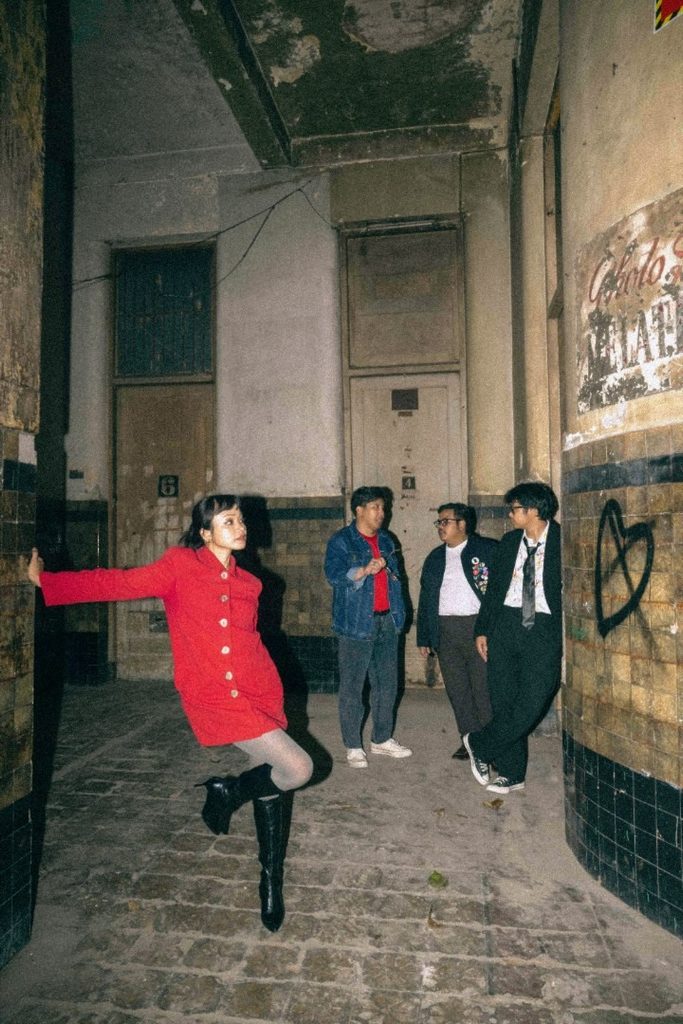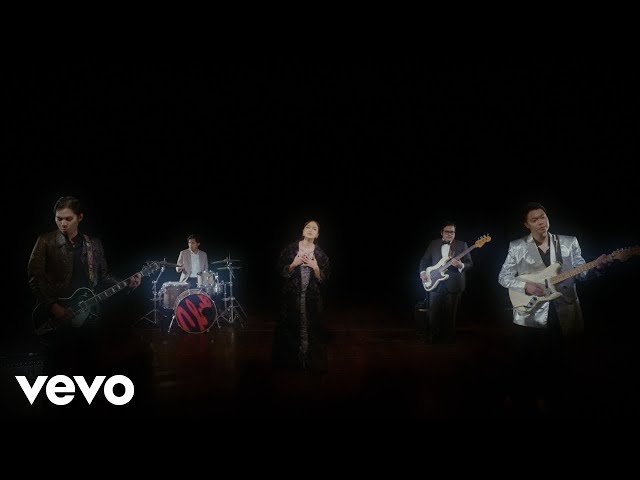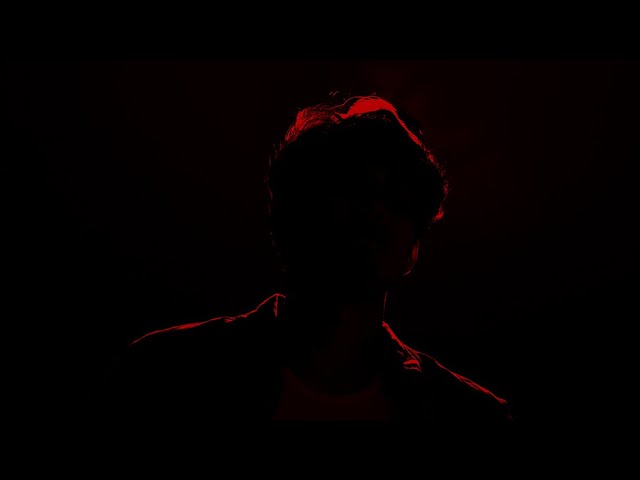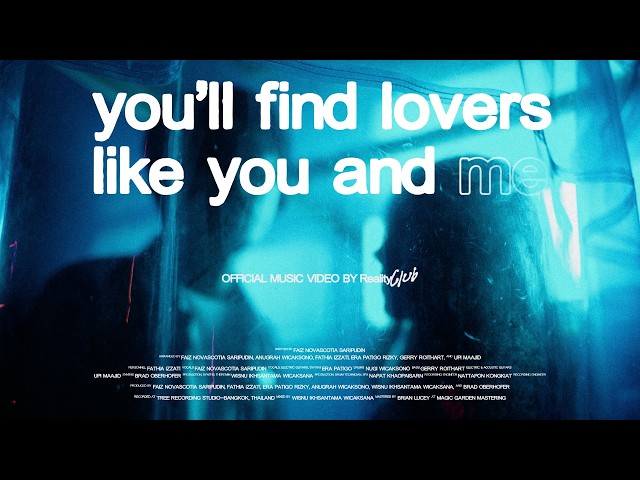In the Philippines, it’s gig culture that dominates most young people’s nights.
On Instagram, you’ll see flyers for gigs happening on a random Wednesday evening. On your way home after a long day in the office, it shouldn’t surprise you anymore when you come across a group of 20-somethings making their way to a nearby place after school or work to watch a couple of their favorite bands play live sets.
Over in Indonesia, things are no different.
As you approach a small bar, a school, or a café on any given day, you’ll hear drums thumping from afar, the steady low hum of a bass persisting, and live vocals piercing through closed doors, all of which will tell you one thing: the Indonesian music scene is as lively as ever.
Among those leading the pack is Jakarta-based indie rock band Reality Club.
For almost the entirety of their early years, it was their debut single “Is It The Answer” that topped their discography. The song reels you in from the get-go, courtesy of the gradual buildup from the opening guitar riff to the quick drumbeats that introduce you to an upbeat symphony of rock.
Lately, though, much of their succeeding releases have come to rival “Is It The Answer,” and it isn’t hard to see why.
From local mall shows to global stages
Formed in 2016, Reality Club has Faiz Novascotia Saripudin on vocals and guitar, Fathia Izzati on vocals and keys, Nugi Wicaksono on bass, and Era Patigo on drums.
Prior to linking up, each of the members who would eventually make up the band was already involved in music in one way or another. One of them had been playing for musicals, another posting covers on YouTube, and another casually playing for a non-professional band.
But the band’s former bassist brought them all together — marking the start of the welcome chaos that would set the stage for Reality Club.

Like any new music act hoping to find their fanbase, gigs at random venues occupied the band’s schedule when they all decided to take this music thing seriously.
When you’re still finding your footing, though, much of what you do ends up becoming memories that may be funny to look back on now, but were, for at least a few months, probably filed under the list of moments that would keep you up at night.
“The first ever show we did was at a mall. And it was for free, obviously, we didn’t get paid for that. And I felt like I was disturbing the mall. We played inside this atrium setup, and then [the mall-goers] were sitting around that area before we started playing,” Faiz recalled, playfully thinking out loud that the patrons had probably chosen to hang out there because it was quiet, only to be disturbed minutes later by a group of young musicians hoping to play music for everyone.
Places like clubs, small concert stages, and “gig venues that aren’t actually venues,” as Fathia puts it, were the band’s second homes for years. Every performance they’d put out in these spaces were as raw as they could get, but always brought them one step closer to global success, even though they didn’t know it yet.

Fast forward to the present, “Is It The Answer” is no longer their most popular song, they’ve got millions of listeners from all over the world, and they’ve set foot on major platforms thousands of kilometers away from Jakarta — and not just around Asia, but America, too.
It’s only just sunken in for Reality Club. But when their fanbase had started to grow tenfold, they couldn’t quite believe it.
“We used to think they were bots. Because we saw the statistics and we have listeners from America. [We would say], ‘Are these even real people? Or are they faking their region?’” Fathia recalled.
“They’re using VPNs, right?” Nugi chimed in. “Turns out they’re real.”
“They’re alive!” Era added.

They wouldn’t have been in the Philippines talking to us face-to-face if it weren’t real. But it is — and all that was really left for them to do was to make the most of it. The next best action to take? Make more music, of course.
Nothing comes by design
Many musicians would agree that the process of finding your sonic identity isn’t clear-cut. It’s not something you set out to do; it just happens. For the members of Reality Club, the songs they put out really aren’t by design.
“I don’t think we have a distinct sound,” Faiz admits. “When we make music, we’re [not] like, ‘We gotta make sure it’s Reality Club!’ We just make it, and it naturally ends up [that way].”
“I feel like finding your sound is a lot like finding yourself. You go through all these experiences, and then you’re like, ‘This is who I am, and this is who I’m not,” he added.

The best songs really come to those who don’t force things too much, and the same can be said for Reality Club.
In creating their latest album, the members had stayed in Bangkok for a month to record all their songs, sporting rugged looks as they remained cooped up in a big studio in the Thai capital.
But their trip to Thailand wasn’t really about having access to these recording facilities and all these different equipment — it was about uprooting themselves from their usual surroundings. This, quite clearly, is what mattered more.
In Thailand, the members would be in the recording studio from 10 am to 5 pm, and for the rest of the day, they were free to do whatever they pleased.
“The good thing about the 10 to 5 working hours is, afterwards, we could hang out, get massages, eat food, and go to night markets. Bangkok is just an amazing place,” Nugi recounted.
“That was the whole point, to take ourselves out of our daily lives. It was nice. It doesn’t feel so foreign because we have each other. We really stuck with each other,” the members shared.
Because to create art, you have to actually go out and experience life outside of what you’re used to, in the hopes that it will take you somewhere. Wherever that is, is for you to find out.
In Reality Club’s case, the outcome ended up being a 13-track album titled Who Knows Where Life Will Take You? — which is arguably the most apt way to describe their nine-year journey as a band.
And in just under a decade, Reality Club’s had much to learn. While the era of digital streaming has made finding your audience a cutthroat affair, it’s the sense of community that outweighs competition.
“As a band, we always [have to] find a spot for us in the industry where we are proud of ourselves, but not be too up in the clouds where we don’t want to mingle with other bands. Socializing and even asking for help from other people is so important here in the industry. We realized that we can’t do everything alone. That’s why we reach out to management, work with different labels and partners, and work with fellow musicians,” Fathia attested.
It’s in the name, too, as Era and Faiz were quick to mention the reality that staying afloat in the industry isn’t just about knowing how to make good music — it’s also about the stuff that happens behind-the-scenes. Think marketing, communication, and the business side of it all.
“I think [what’s important] is finding a balance between your ideals as a musician but also realizing that if you want to do this full-time, you have to learn about the business because it’s what’s going to support the creative process,” added Fathia.
All these takeaways have clearly worked for the band in all the time they’ve spent pursuing their craft together. In the years to come, things will only get more chaotic, but in the best way. – Rappler.com
Content shared from www.rappler.com.

